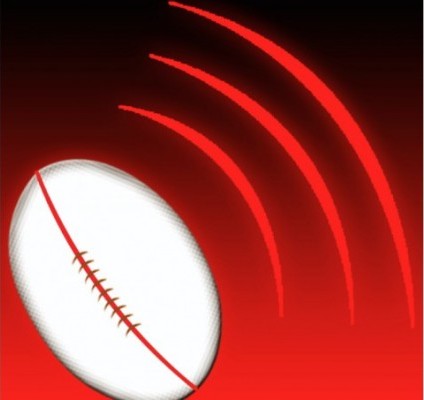Zackary Provides Example of How To Leave it Out on the Field
Zackary Provides Example of How To Leave it Out on the Field
Let's be blunt: improvement and success for the USA Women's National 15s team relies on more players emulating their captain.
This is not news. Captain Kate Zackary's effort level, rugby intelligence, and dedication is something every player should aspire to. Yes, she's an athlete, but she combines that athleticism with all the things that don't take talent—hard work, knowledge of the game, and a willing to go over the edge in terms of playing fatigued.
We at GRR got a chance to ask USA Head Coach Sione Fukofuka about that, with Zackary in the room. The captain was characteristically embarrassed by the praise, but facts are facts.
"I think the the biggest thing is that Kate puts in the work before she arrives," Fukofuka told GRR. "There's an expectation on leadership that comes with the title, but, you know, not to embarrass her too much, but the extras that she'll do, knowing that she has to be, keeping that blue headspace, making good decisions. There's sometimes an assumption that the captain gets picked first, but the reality is the captain has to earn their jersey over and over and over. And and she does that really well."
When the players assembled for this currently preparation for Japan, coaches ran them through a speed test. It's not designed to measure who is the fasted, but who can maintain her pace the longest. Players ran 12 20-meter sprints, and coaches measured how much the speed dropped off from the 1st to the last. Anything less than an 8% dropoff is considered world class. Zackary was it 7%.
"Not a surprise," said Fukofuka. "Coming off the PWR [Premier Women's Rugby in England] most players have to go into sort of a preseason mode. Kate did that. It's a challenge not being in a team environment and having to work by yourself. But that's the responsibility that comes with the C next to your name. It isn't something Kate takes lightly."
Cornered in the interview to talk about this, Zackary smiled her aw-shucks smile and started talking about teammates.
"It's a learned thing to go to the dark place," she said. "It's not not necessarily just a trained thing, because you can train people into the dirt but that doesn't mean they're going to understand how to go beyond. So it's a bit of a training thing and a learning thing. And what is it good to see is this group in camp already, you can tell they're ready to push beyond. There are people you've seen do it—Mackenzie Hawkins, Rachel Johnson, Tess Feury. Bulou Mataitoga is another person who continues to work as hard as she can—she is literally someone who leaves it all in the field, cramps and all. Hope Rogers, Kathryn Treder earned that jersey because of the work they do, but not just because they're good rugby players. You need to have those players you can rely on to play, even in the hardest of moments, physically and mentally."
And players know they are expected to put out supreme effort. Win or lose, that's what fans want to see.
"We're preparing every player in our squad to play 80 minutes and trying to build an environment where we compete for 80 minutes," said Fukofuka. "Every time that we have a ball in play Chobot, our defense coach, is pretty clear—even if it's an attack drill, if we've got defense in front, we're competing. So like it. It's a bit of the DNA in this group. I can't speak higher of their work ethic.
"Last year, when we came in, we shifted the bar and we asked more of them. We felt it translated [onto the pitch]. It's about changing that expectation from competing to winning and to win. You've got to play 80 minutes plus you've got to go deep into that. Now they've got to understand that they can push further and harder than they have. For us it about pushing harder and harder into games, and realizing their capacity. Potential is only something that that sits there on a page until it's actually realized."












